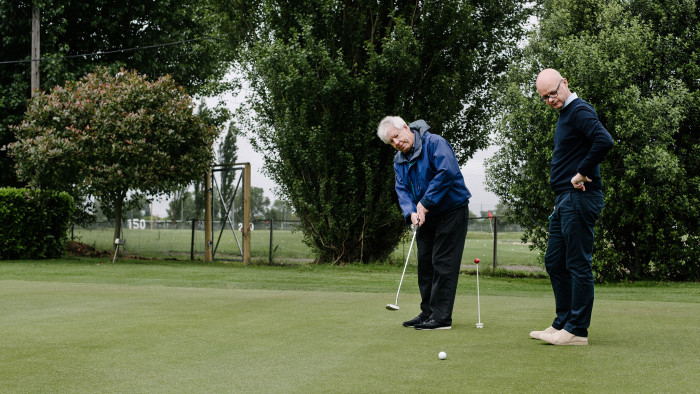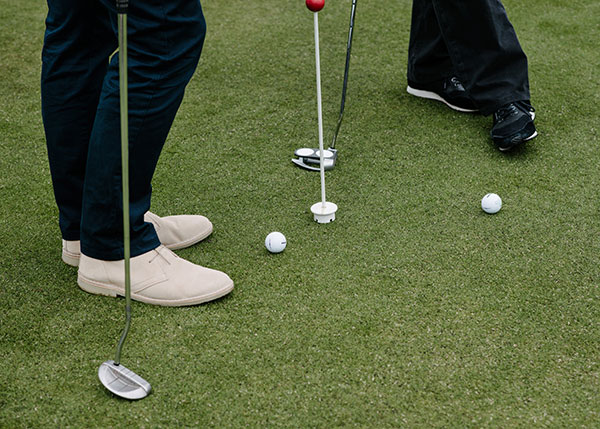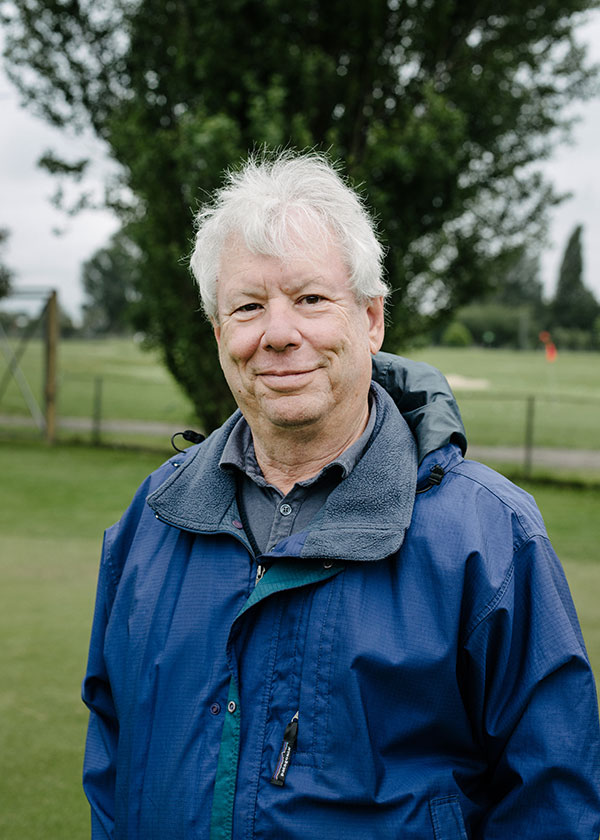FT Masterclass: putting with Richard Thaler

Simply sign up to the Life & Arts myFT Digest -- delivered directly to your inbox.
The original plan was to play a round of golf. However, my opponent, the economist Richard Thaler, is an extremely keen golfer, while I have never played a proper game in my life. So instead I have suggested that perhaps we stick to putting. Surely, I reasoned, hitting a ball over relatively short distances towards a hole can’t be that difficult?
This assumption would soon turn out to be a perfect demonstration of one of the central theses of Thaler’s work in behavioural economics: that “supposedly irrelevant factors” such as overconfidence, traditionally discounted by orthodox economic models of behaviour, are actually key features of human nature. As he puts it in his most recent book, Misbehaving , the “core premise of economic theory is that people choose by optimising”. That may be true of the imaginary creature Thaler calls the “Econ”, but not of flesh-and-blood human beings. We frequently make less than optimal choices and generally “misbehave” in all sorts of interesting ways — not least on the golf course.
I meet Thaler relatively early one morning on the pristine practice green at Dukes Meadows, a club on the banks of the Thames at Chiswick. The genially rumpled 70-year-old, who also co-authored the book Nudge, is visiting the UK from the US, where he teaches at the University of Chicago.
“I fall into the following trap that every golfer I know experiences,” he tells me. “You go out on the practice range and something kind of clicks and you start hitting the ball very crisply. And you’re sure that you’ve found it, the holy grail — that all you have to do is hold your hand in a certain way. Then you go out on the golf course and it’s completely disappeared.”
As we make our way to the green, Thaler tells me he plays golf once or twice a week. His regular partners are the Nobel laureate Eugene Fama and Steven Levitt, co-author of the best-selling book Freakonomics. They don’t talk shop on the course, though. “I don’t discuss the efficient markets hypothesis with Professor Fama,” he says.
The hours he spends playing are respite from intellectual labour. “You’re typically in a very nice place. You’re outside. There’s several miles of walking.” He thinks this is why several American presidents have played the game — from Dwight D Eisenhower, who was inducted into the World Golf Hall of Fame, through Richard Nixon and Bill Clinton to Barack Obama. “The attraction is that it requires concentration and so it requires you to stop thinking about anything else.”

What about Donald Trump? “He’s certainly an avid buyer of golf courses,” Thaler observes. “So I take it he also plays golf.”
It’s time for us to play. The club has provided us each with a putter. Thaler’s has a thicker handle than mine. “A thick handle helps because you don’t want any wrist [in your stroke],” he tells me. “You just want smooth; none of this stuff” — he holds the putter horizontally away from his body so that it wobbles alarmingly, like an oversized dowsing rod. He instructs me to keep the head of the putter parallel to the ground, so I tense my shoulders slightly and concentrate on getting the club in the right position. I try a couple of practice strokes while Thaler takes his first shot. He hits it smoothly to within a couple of feet of the hole.
It’s my turn. I ask how my grip looks. “Not bad.” The same can’t be said for my first putt, which I overhit dramatically. I retrieve my ball from the apron of the green and try again.
“Overreaction. We’re expecting overreaction,” Thaler announces. He’s right. This time my ball trickles to a halt several feet from the flag. “Now, of course, you’ve overcompensated.” He reminds me that the action needs to be smooth. Mine is jerky and wristy. I’m also moving my hips. “Your lower body should be completely still,” he says. “Just move your shoulders.”
What looks like a simple action turns out to be pretty complicated. When I focus on keeping my hips still, I forget to lock my wrists, and vice versa. Eventually, I manage to assemble all the requisite actions in a single, smooth stroke. And my contact with the ball is audibly better. “Excellent. Much better,” Thaler says. “I could hear that was good. That means you hit it in the middle.”
It isn’t just amateur golfers who behave in ways that standard economic models would not predict. Thaler tells me about a paper co-written by his Chicago colleague Devin Pope. Pope and his co-author examined 2.5 million putts made by professional golfers on the PGA tour. They found that pros are “significantly influenced by the reference point of par” — the predetermined number of strokes required to complete a given hole on the course. Thaler explains: “A professional golfer expects to get par. A ‘birdie’ [a score of one stroke under par] is a bonus. It appears that they concentrate particularly hard on par putts and make two or three per cent more of them. They seem a little too conservative on the birdie putts.”

In other words, professional golfers are, like the rest of us, “loss-averse” — a loss hurts them more than an equivalent gain gives them pleasure. In Misbehaving, Thaler writes that the notion of loss-aversion has become “the single most powerful tool in the behavioural economist’s arsenal”.
“For amateur golfers,” he says, “I think one of the biggest mistakes is to model their play on professionals.”
Nevertheless, before our next shot, we squat in the manner of professionals eyeing a championship-winning putt and assess the lie of the land. There is a slight slope from left to right. The putt that Thaler has challenged me to make is about 15ft. Concentrating hard, I compensate for the slope by aiming to the left of the flag. The ball describes a gentle arc, the slope carrying it towards the hole, before stopping just short.
“Well done!” Thaler cries. This is what it must feel like to get an A in his introductory economics class. “That was very good. Well judged and perfect speed.” Inevitably, the praise goes to my head. I hit my next shot off the green and the ball disappears under a bush. “A ball lost on the putting green!” His tone suggests this doesn’t happen very often.
I ask if I’m a lost cause. He demurs but recommends that I take some lessons. “One of the analogies with behavioural economics,” he says, “is that there aren’t enough lessons in life. You get a PhD and then get a job as a professor, but you’ve never had a lesson in teaching. We could all use more coaching.” And that’s as true for economists, he admits, as it is for golfing beginners.
‘Misbehaving’ is published by Penguin
Photographs by Owen Richards
Comments